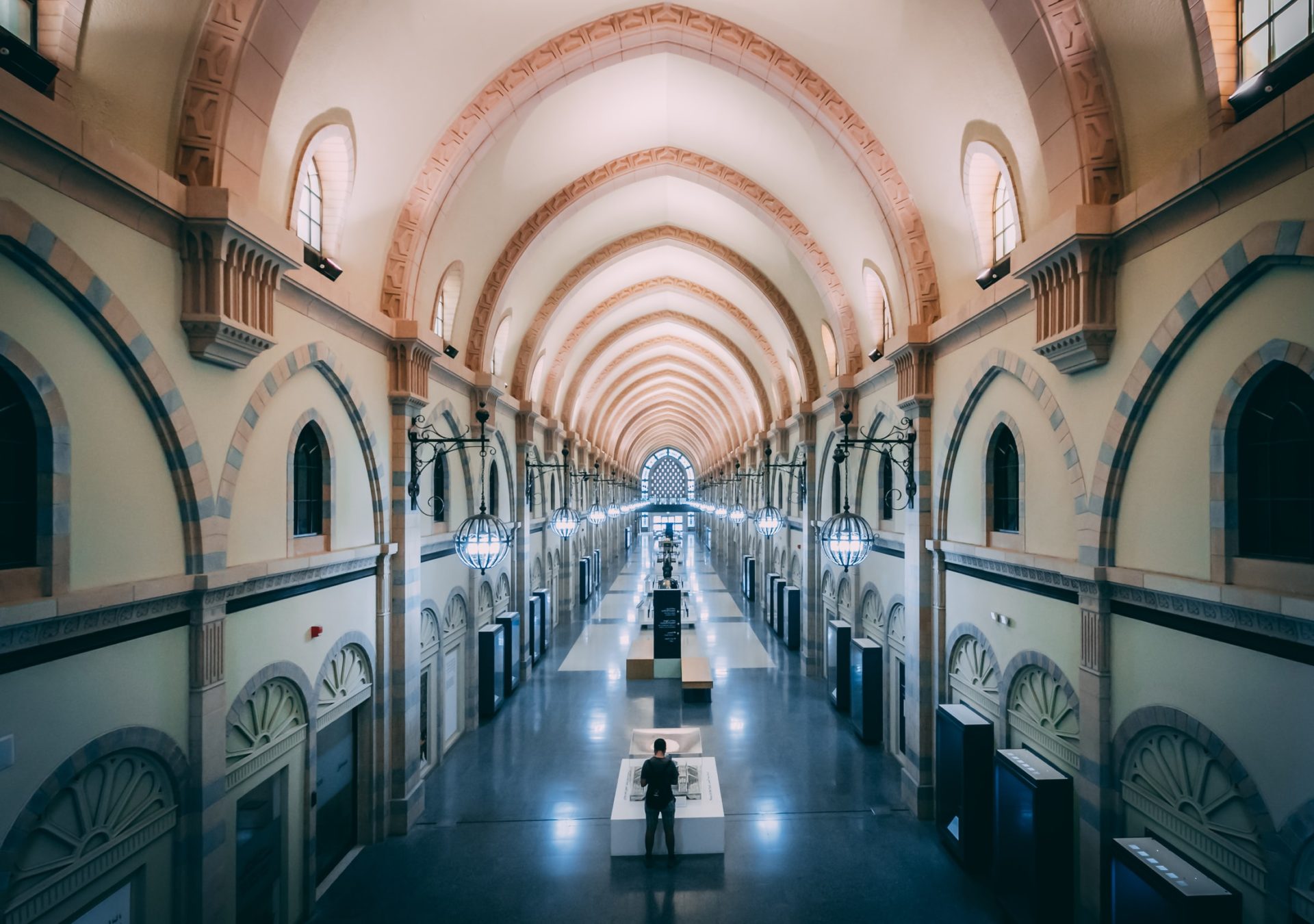Islamic Finance: Your Ultimate Guide to the Essentials
Islamic finance is booming. S&P Global Ratings values the Islamic finance industry at 2.2 trillion American dollars. That’s nearly three trillion Australian dollars.
More and more people are getting curious about Islamic finance. They have a lot of questions.
What is Islamic finance, and how does Islamic law relate to it? What are some ways that investors can make money or buy a property? What are different financing models?
Answer these questions, and you can join the exciting and equitable economic sensation of Islamic finance. Here is your comprehensive guide.
Shariah
Shariah is the subset of the Islamic law that helps determine equitable financial operations. Financial operations have always been allowed under Islamic law. But certain practices are forbidden or regulated.
Not Shariah-compliant refers to any activities that are forbidden in Islam. One prominent one is eating pork.
A Muslim cannot invest in anything they cannot do themselves. They cannot invest in a pig farm or a food company that sells pork products.
Halal is the opposite. Muslims can perform halal activities, and some activities are mandatory.
One of the Five Pillars of Islam is zakat, giving alms to the poor. A Muslim can make money, so they can then give alms. They should try to donate to Muslims or to Muslim-run organizations.
Riba
Riba is a term that can refer to a few different things. The most common use of the term is for interest on loans and deposits.
Riba is a non-Shariah-compliant practice. It is considered unethical because it is not equitable.
Someone who is unable to pay a debt through no fault of their own is penalized for it. The person who receives interest does not earn any money through hard work. This can generate greed and distrust.
It does not matter what the interest rates are. All Muslims must engage in interest-free lending with all of their global financial assets.
Some people define riba as all unequal economic exchanges. Someone who sells a piece of property for more money than it is worth may be engaging in Riba.
When in doubt, Muslims should be honest in their banking interactions. Even if they are not violating Islamic law, they are creating a more equitable transaction. This may help them secure future deals.
The evolution of riba is ongoing. Practices that are permissible today may change through time. Pay attention to the works of Islamic scholars and be prepared to shift your financial operations.
Gharar
Gharar is another forbidden activity in Islamic finance. The word has literal meanings of “uncertainty” and “risk.”
Most Islamic scholars use it in reference to financial deals with uncertain qualities. Someone who is buying property may not know how much property they are buying.
This is the case with buying farmland. A person cannot know how their farmland will perform for the upcoming harvest. The money they spent on it may be a waste.
This is also the case with futures, options, and short selling. Someone cannot know how their options will do.
Islamic law regards Gharar as unethical because it is inequitable. One person in the interaction has an advantage in knowledge or resources.
It is okay for someone to short-sell fungible goods like wheat. But they must deliver the goods to the buyer in a timely fashion. If the delivery is delayed, the person has violated Islamic law.
Maisir is an overlapping concept. It refers to gambling, which is illegal for the same reasons as Gharar. No Muslim can have involvement in any contract where the ownership of property depends on uncertain events.
Sukuk
A Sukuk is a financial certificate. It complies with Islamic law and serves a function similar to a bond.
Most Western-style bonds rely on interest, which is illegal in Islam. A Sukuk involves someone selling a certificate to an investor. They then use the money to buy an asset that the investor has ownership over.
The issuer of the Sukuk and the buyer can share ownership of the asset. The asset can be a piece of property or a business. The investor does not have a debt obligation to the issuer.
Murabaha
Murabaha is cost-plus financing. A seller and buyer participate in cost-plus pricing, agreeing on the same cost of an asset. They also agree to markup an asset, allowing the seller to earn more money.
The markup serves the same purpose as interest. But both parties make a mutual agreement about the markup, and the buyer pays for it right away. This keeps murabaha from becoming riba.
Most finances use murabaha in place of loans. Many contracts involve the seller buying an item on the buyer’s behalf. The buyer then pays for the item through set instalments that do not change through time.
The buyer cannot pay charges beyond the due date. This means that the seller can suffer from a default. There is no clear way to resolve these defaults, though the buyer and seller can work out an arrangement.
Mudarabah
Mudarabah creates a profit-and-loss sharing relationship. A financier provides money to another person. That individual can buy an asset or manage the money through investments.
Both parties profit from this arrangement through a ratio. They can split the profits however they like, as long as they agree to the split in advance.
The financier can provide knowledge and additional resources to the investor. If a loss occurs, the investor sustains it. They can lose money from the capital that they received or any additional investments they made.
A Muslim financier can give money to a non-Muslim investor, or vice versa. But the investments should follow Islamic law. Mudarabah is not an excuse for a Muslim to go around shariah regulations.
Musharakah
Musharakah is a profit-and-loss sharing venture. All partners involved in the venture contribute capital from their savings.
All are involved in how their investments work. If their investments lose money, all of them sustain a loss.
Musharakah is common for entrepreneurship. Muslims and non-Muslims can work together to start businesses, with each partner helping out.
Some Musharakah agreements involve diminishing partnerships. A bank and an investor work together to buy a property.
As time goes on, the investor pays the bank some money and the bank transfers its equity to them. This is akin to a property loan, but it avoids interest.
Other agreements are permanent. They remain in effect for as long as the partners want to work together. They may stop if their business fails or when they retire.
Investment Vehicles
There are other investment vehicles available to observant Muslims. Muslims can buy shares in a company, including ones that non-Muslims own. The company cannot be involved in non-Shariah-compliant practices, regardless of their degree of involvement.
A Muslim can participate in private equity investments. They can buy assets that a public exchange does not advertise. They can help buy out companies as long as they are not violating Islamic law.
Leasing is also available. But the lessor must own whatever they are leasing for the entire duration of their lease. The lessee does not have to purchase the item if they do not want to.
Insurance
Traditional insurance is Gharar. A person is buying an insurance package without knowing if they will ever need it. But Islamic banks have made alternatives to traditional insurance available.
One popular alternative is cooperative insurance. A group of people pay into a pool of funds that an insurance professional maintains.
The subscribers then withdraw money when they need it, including for medical emergencies. If there are unclaimed profits, the insurance professional distribute them out.
There is a vigorous debate about whether insurance is halal or not Shariah-compliant. Some Islamic scholars do argue that traditional insurance is permissible because the intentions of insurance are good. But a Muslim can err on the side of caution and focus on cooperative insurance.
Hawala
Hawala is a means of transferring money. It is informal, meaning that arrangements are based on trust and not official contracts.
A person goes to a hawala dealer to arrange a money transfer. The person gives the dealer the details of their transaction, which can occur across international lines.
The dealer contacts another dealer in the recipient’s area. They ask the dealer to give the money to the recipient, and they do so.
The first dealer then owes the second dealer the amount of money they transferred. They try to make up their debt in a short period of time.
Muslim communities throughout the world use hawala for paperless financial interactions. Some banks may conduct it, but it is a good way to transfer money without banks.
Islamic Banks
An Islamic bank is an institution that specializes in Islamic finance. All Islamic banks run their operations through imams and religious officials to make sure they are in compliance.
Islamic banks serve Muslims and non-Muslims alike. Many non-Muslims are drawn to them for their ethical practices and transparency.
The Essentials of Islamic Finance
Islamic law shapes Islamic finance. Practices like investing in alcohol companies are forbidden under shariah law. The law does not allow Riba or Gharar due to the inequitable nature of both.
A Sukuk allows a financier and investor to share assets. Murabaha, mudarabah, and musharakah create sharing relationships that allow individuals to afford property expenses.
Muslims can participate in similar investment vehicles and money transfers as non-Muslims. Islamic banks help people of all backgrounds manage their money.
You don’t have to go far for Islamic finance. Crescent Wealth serves communities throughout Australia. Contact us today.
Share this
You May Also Like
These Related Stories

History and Evolution of Islamic Finance and Islamic Investment

A Glossary of Islamic Finance, Islamic Banking and Islamic Investment terms


